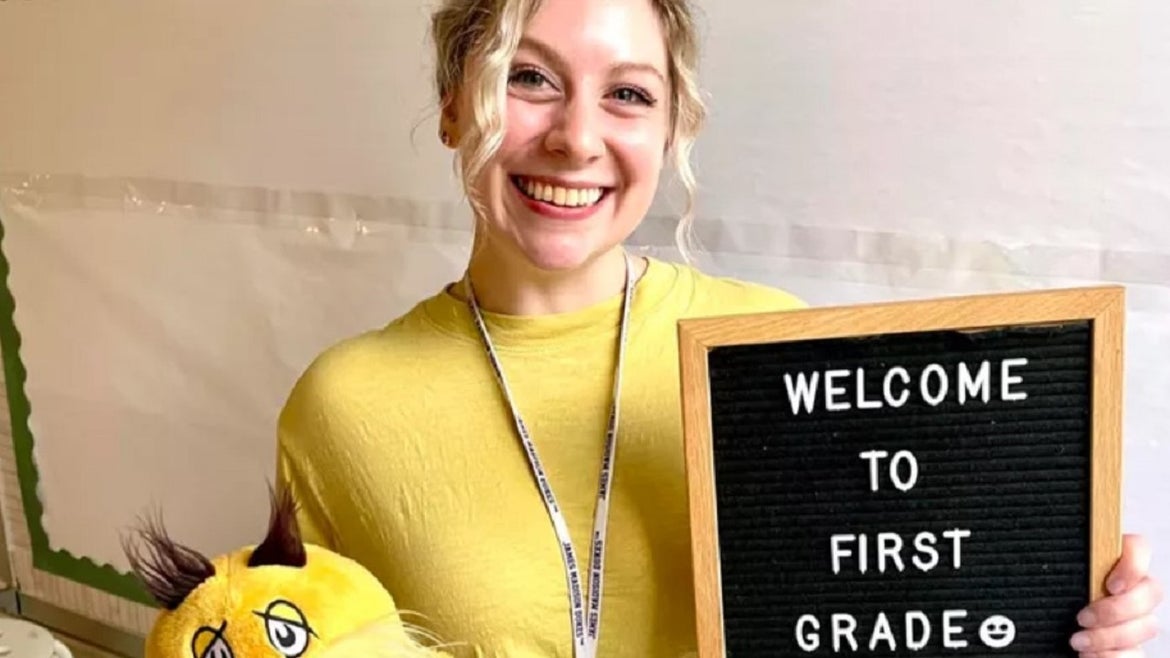The little boy who shot teacher Abigail Zwerner at a Virginia elementary school won't face charges because he is too young to understand the legal system, according to the local prosecutor.
A 6-year-old Virginia boy who shot his teacher in the chest as she instructed class will not be criminally charged because he is too young to understand the court system and aid in his own defense, a local prosecutor says.
The child, who has not been identified, had carried a loaded gun to Richneck Elementary School in Newport News on Jan. 6 and fired it inside his first-grade classroom at teacher Abby Zwerner, authorities said. The bullet penetrated her upraised hand and lodged in her chest.
"We don't believe the law supports charging a 6-year-old with a criminal offense as serious as this one," Newport News Commonwealth's Attorney Howard Gwynn told WVEC-TV on Wednesday.
A defendant must be competent to stand trial and understand the charges filed against him, Gwynn said. A defendant also must be able to assist in his defense.
"I think it's problematical to assume that a 6-year-old understands the criminal justice system enough to be competent to stand trial," Gwynn told the station.
The child, whose parents said suffers from an acute disability, has been confined to a mental health facility for observation and treatment, authorities said.
His 25-year-old teacher is still recovering, according to the woman's attorney, who filed a letter of intent last month declaring she intended to file a lawsuit against the school district.
According to attorney Diane Toscano, the boy allegedly had a long history of violent behavior at the elementary school and had previously hit other students with his belt, smashed Zwerner's cellphone and choked another teacher until she couldn't breathe.
The boy had been suspended for one day after breaking Zwerner's phone, Toscano said. When he returned to school, he pulled a 9 mm handgun from his pocket and shot Zwerner, she wrote in the intention to sue letter.
On the day of the shooting, the school's administrators had been warned three times that the boy had brought a gun to school, Toscano said at a January press conference.
“On that day, over the course of a few hours, three different times — three times — school administration was warned by concerned teachers and employees that the boy had a gun on him at the school and was threatening people. But the administration could not be bothered,” Toscano told reporters on Jan. 25.
The school district has not commented on the case, citing the ongoing investigation.
The school's assistant principal, Ebony Parker, resigned on Jan. 25, according to a school spokesperson. The Newport News School Board voted to remove its superintendent, effective Feb. 1.
The boy's parents released a statement through their attorney after the shooting.
"Our heart goes out to our son's teacher and we pray for her healing in the aftermath of such an unimaginable tragedy as she selflessly served our son and the children in the school," the statement said. "She has worked diligently and compassionately to support our family as we sought the best education and learning environment for our son."
The gun used in the shooting had been legally purchased by the boy's mother, and had been secured, the statement said.
"Our family has always been committed to responsible gun ownership and keeping firearms out of the reach of children. We have been cooperating with local and federal law enforcement to understand how this could have happened," the parents said.
Police said at the time that the shooting was "intentional."
The incident remains under investigation, and the prosecutor said he has not ruled out the possibility of charging others in connection with the shooting.
Gwynn said Wednesday his office is still reviewing three binders of evidence and information submitted by police.
"Once all that information is viewed and we understand the facts fully, then we will apply the facts to the law and if the law supports charging persons with criminal offenses that we can prove beyond a reasonable doubt, then those persons will be charged," Gwynn told the station.
Related Stories






